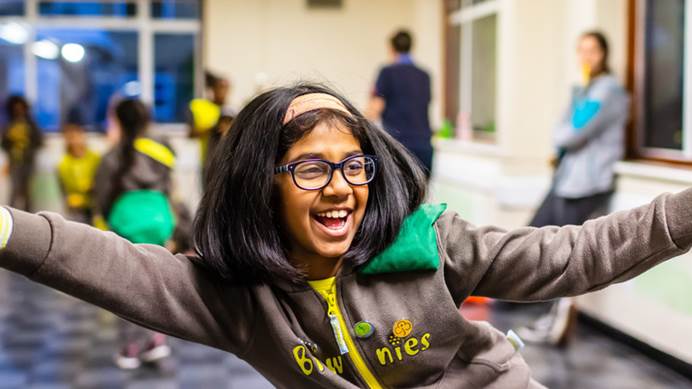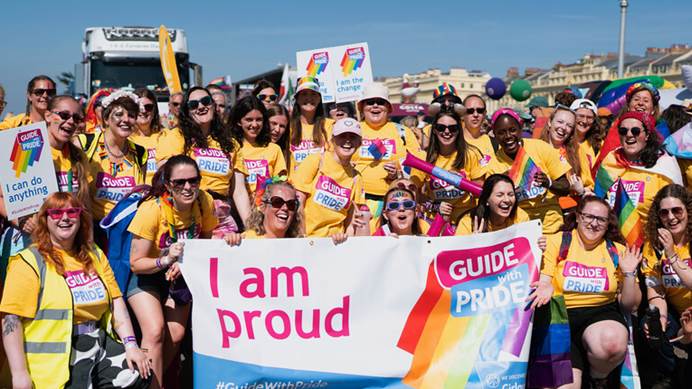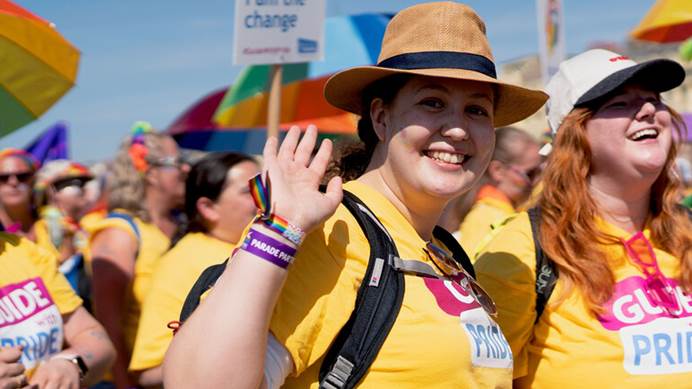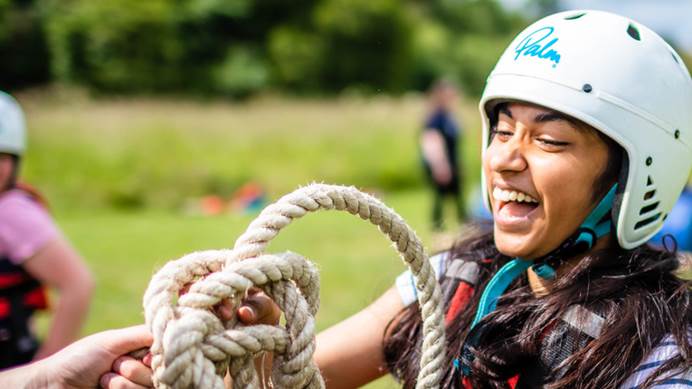Anti-racism in the charity sector
The movement to build inclusive organisations is much bigger than Girlguiding
Nothing we do at Girlguiding happens in isolation.
As a UK charity, we are part of a bigger movement of organisations and campaigns backed by a growing body of research, all trying to make the charity sector more inclusive and welcoming for everyone. We’ve just published our new diversity and inclusion strategic plan for Girlguiding, where we address some of the challenges we face as an organisation, in order to live up to our values of inclusion.
While it is perplexing to consider the scale of change that is needed sector wide, it also feels hopeful because there are many organisations confronting the discrimination, exclusion and inequalities that exist in our society. And an integral part of that work is about being anti-racist. One year on from the tragic death of George Floyd and a resurgence in the Black Lives Matter movement feels an apt time to reflect on these challenges.
Keep having honest, open conversations
In August 2019, #CharitySoWhite sparked a massive conversation about racism in the charity sector. The hashtag created an opportunity to have an honest public discussion about racism. People of colour were encouraged to tweet about their experiences of racism in the third sector using the #CharitySoWhite hashtag, and the campaign came to life. Thousands of people began to share their experiences of racism, from interns to board members, and they continue to do so.
It highlighted that racism does not just apply to individual people who discriminate against others. If there have been lots of incidents of racist and oppressive behaviour, we have to acknowledge that the problem is also a structural one. #CharitySoWhite encouraged charity leaders to consider the ways that they can tear down racist structures.
What is structural racism? Structural racism describes a system where policies, organisations and even laws reinforce biases against a particular racial group of people. It happens because many countries around the world have long histories of racial discrimination that have allowed people of colour to remain disadvantaged. Structural racism is not something that a few people or organisations choose to do. Instead, it’s a feature of the world in which we all live, and affects all of us.
ACEVO’s Home Truths report echoes these voices and found that racism is a significant and unresolved issue in the charity sector, just like in society. It also showed how - even with the best intentions - policies and procedures can discriminate against people of colour. In a sector so reliant on and experienced in working with volunteers, the findings of NCVO's Time Well Spent: Diversity and Volunteering, are important to note. They found that for most people, volunteering is a positive experience. However, some volunteers are less likely to have a positive experience than others, including younger, Black, Asian and minority ethnic (BAME), and disabled volunteers.
It is essential that we continue to have honest conversations, and publicly acknowledge that racism exists. It exists alongside other areas of discrimination, and so we need to embed anti-racism work within our organisations. At Girlguiding, we’ve recently done an audit to listen, learn and understand the experiences of people from marginalised groups in our charity. What we found has informed our new strategic plan for diversity and inclusion to make changes. Striving for equality of opportunity at Girlguiding will help address the inequalities that currently exist for people of colour in our movement and improve their experiences.
Stand in solidarity and keep learning
In May 2020, The Black Lives Matter movement was regalvanised; the tragic and public death of George Floyd triggered a global wave of outrage and sorrow. We shared our voice and continue to stand in solidarity with the Black Lives Matter movement, and we commit to stand together as a movement against racism.
As a charity for all girls and young women, we are deeply curious about young people's experiences. In YMCA’s 2020 Young and Black' report, young Black people in the UK said that they now expect to experience racism because of their skin colour. This expectation emphasises that it is even more important to create an environment where marginalised young people can flourish, heal and be empowered. We know that people can experience greater exclusion or discrimination based on how multiple aspects of their identify overlap or intersect. Part of our role as a youth charity is to be informed on how this exclusion and discrimination happens and affects girls and young women.
We'll continue to hold ourselves to account, listen to people's experiences, acknowledge when we don’t understand or make a mistake, work hard to do and be better, and commit to learn from each other. Most importantly, we will amplify the voices of marginalised people and stand in solidarity with our Black girls, Black volunteers, Black staff, Black parents and carers, and all Black people.
Reflecting on our sector’s inclusion and diversity journey helps us recognise that Girlguiding is not alone in looking at ourselves and making changes to become more like the organisation we want to be for everyone. Over the last few months charities, including NCVO, Barnardos, Amnesty International, the National Trust, Shelter and The Scouts, have all publicly shared new commitments and how they are seeking to make their activities more inclusive and/or their teams and movements more diverse. It inspires us not to be complacent. These issues will not address themselves, and we must actively work to improve equality and inclusion at Girlguiding.



